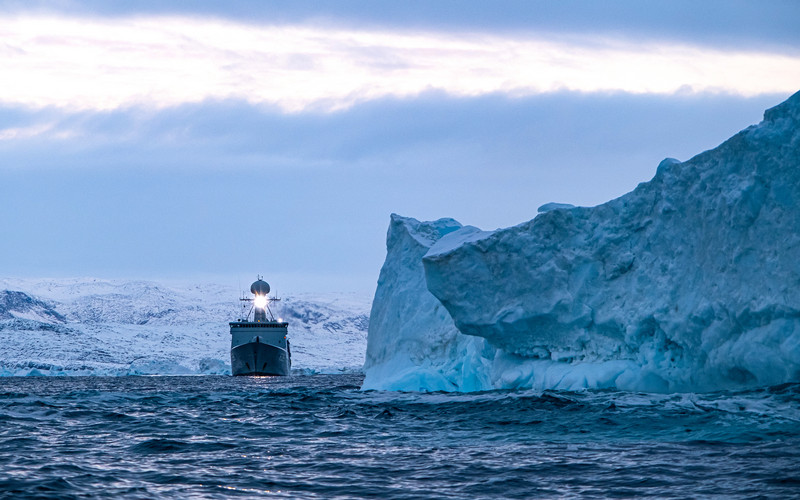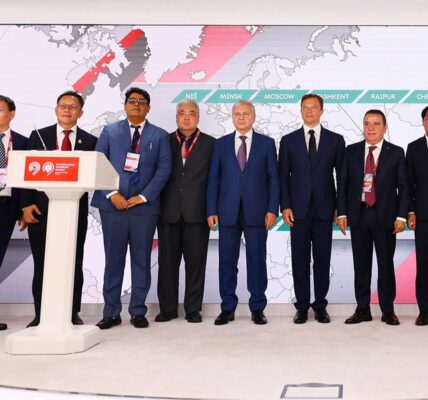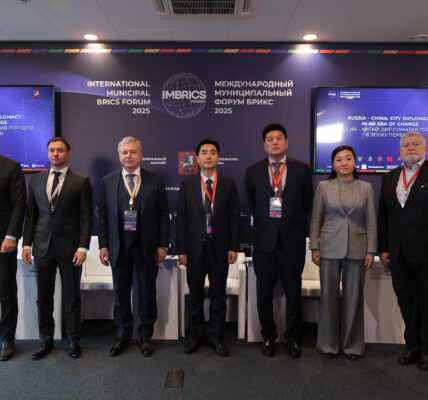Norway is leading a Western restart of science cooperation with Russia in the Arctic, puncturing an EU cordon sanitaire.
“The war in Ukraine is a tragedy, a crisis, and only Russia has full responsibility for that, but at the same time we have a climate crisis and … global warming is happening faster in the Arctic than elsewhere,” said Arctic Council secretary general Morten Høglund.
“It’s about trying to deal with multiple crises simultaneously,” he told EUobserver by video-link.
The Arctic Council (AC) is an intergovernmental body based in Tromsø, Norway, that includes Western allies Canada, Denmark, Finland, Iceland, Norway, Sweden, and the US, as well as Russia.
It monitors climate change, protects biodiversity, promotes indigenous people’s rights, and coordinates search-and-rescue operations, but is meant to stay out of security affairs.
It shut down almost overnight for the first time in its 30-year history when Russia invaded Ukraine on 24 February 2022.
But its six “working groups”, a special group on black-carbon pollution, and related “expert groups” quietly restarted work with Russian scientists in September after Norway, the AC’s current chair, brokered a deal.
“It won’t be business as usual — meetings at political level won’t be possible,” said Høglund, speaking of his foreign minister’s instructions.
“I have no illusions we’ll be operating like we were three, five years ago — we’re in a ‘new normal’,” Høglund added.
AC meetings before the Ukraine war used to see Russia’s Arctic envoy Nikolai Korchunov and sometimes even Russian foreign minister Sergei Lavrov mingling with their Western opposite numbers.
The first baby-step in restarting AC work with Russia used “written procedure” to discuss pre-war projects, Høglund said.
The next step will be video-link meetings of Western and Russian scientists to talk about new research initiatives, he said.
The 58-year old Norwegian politician has travelled widely in Russia’s Siberia region, Greenland, Norway’s Svalbard archipelago, and in the US state of Alaska.
“Having a 10 to 15-year gap in climate [science] cooperation [with Russia] — can we afford that?,” he asked rhetorically, amid fears the Ukraine war could drag out.
“We want to make sure the [AC] structure is intact, because tearing something down and starting to rebuild it in some years [after the war] is much more difficult than keeping it and adjusting the ambition level accordingly,” Høglund also said.

Arctic exceptionalism
The AC is associated in international relations with “Arctic exceptionalism” — a post-Cold War ideal that the High North should be kept a geopolitics-free zone for the global good.
Russia and the West still work together on the International Space Station in the same ethos.
Oslo and Moscow also have a bilateral Arctic fishing accord in another rare example of Ukraine war-time cooperation.
But for all that, Høglund’s science diplomacy goes against the grain of wider Western efforts to keep Russia isolated, which extend even to sports and cultural events.
The EU has also stopped cooperation with Russian scientists in its multi-billion euro Horizon programmes as part of its toughest-ever sanctions regime.
“There are currently no EU funded projects under Horizon 2020 and Horizon Europe involving Russian organisations,” the European Commission said, referring also to plans for 2024.
“All Russian participations from Russian public or public-related entities in ongoing Horizon 2020 projects have been terminated,” it added.
Russia tensions flared already in the Arctic in 2021, when a suspected Russian fishing boat cut a data cable between Norway and Svalbard.
They flared again last October when Norway arrested a Russian spy posing as a Brazilian “Arctic security” researcher at the University of Tromsø.
And Russian president Vladimir Putin has poisoned European academia in other ways.
Russia has bombed Ukrainian universities and schools, killed leading Ukrainian scientists, and seen the number of Ukrainian scientific publications dwindle.
Meanwhile, Russia’s universities have signed letters in support of Putin’s actions.
But some Russian scientists have been tried as traitors after doing joint projects with Western colleagues.
“We at NASC [the National Antarctic Scientific Centre of Ukraine] were glad other Arctic states suspended cooperation with Russia,” said Andriy Fedchuk, a Ukrainian spokesman.
“No one can cooperate with states that violate international law the way Russia does,” he said.
A new study by the University of Bergen in Norway also painted a picture of deep mistrust, despite the AC decision.
“Today collaboration between Western and Russian institutions is banned by Western countries,” it said, referring to EU sanctions.
“Western scientists report that they are cautious of connecting with Russian colleagues. They fear negative reactions from both colleagues and funding bodies,” it added.
“Western security services are explicit on the potential of science arenas being used for spy activities, and the threat of Russian scientists being used as ‘agents’ is real,” the Bergen report said.

Russian creep
For their part, Russian diplomats and think-tanks had been lobbying for the AC to reset relations, as the Kremlin seeks to rebuild its reputation.
Høglund was reluctant to comment on questions if this might help Russian propaganda.
But he underlined that the restart was based on a full “consensus” of the Council’s eight members. “I talked with every single state,” he said.
“I don’t think it [the Artic] was ever a ‘virgin zone’,” he remarked, to dispel any hint of naivety on the “exceptionalism” conceit.




